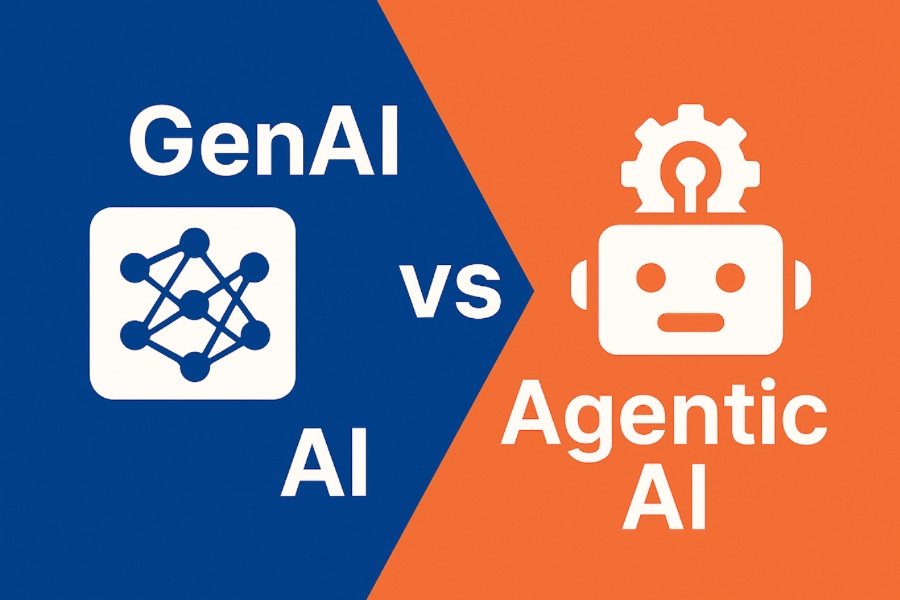SEO Strategies for 2025: Key Insights and Future Trends For Cyber Security Marketers
November 14, 2024, 6 min read
As we move forward into 2025, SEO continues to evolve, shaped by new technologies, changes in search algorithms, and shifting user behavior. Here are some of the key takeaways and SEO Strategies for cyber security marketers to adapt to these changes.
The future of SEO will be dynamic, with ChatGPT potentially driving traffic to certain sites. This change highlights the need for SEOs to adapt to emerging traffic sources beyond traditional search engines.
1. Studying More About AI in SEO
AI-generated content is becoming more prevalent, but human expertise remains crucial. While AI can help with efficiency and content generation, human insight is needed to refine and optimize content, ensure brand voice, and maintain ethical standards. SEO professionals must balance AI tools with creativity and critical thinking, especially when creating content that resonates with audiences and aligns with search intent.
2. SEO is Not Black and White
SEO is a dynamic field—there are no set standards, and approaches must constantly adapt. SEOs must stay flexible, use data-driven decisions, and refine strategies based on real-time trends, algorithm updates, and community insights. It’s a space constantly evolving, and the key to success is remaining adaptable. SEO is a nuanced and evolving field. There’s no one-size-fits-all solution, and strategies must adapt based on industry changes, user behavior, and algorithm updates. SEO requires a combination of data-driven decisions, creativity, and flexibility.
3. User Engagement Signals
User engagement remains one of the strongest factors for ranking well in 2025. Google is increasingly focused on understanding if users are truly engaging with content, using signals like click-through rates, time on page, and bounce rates to gauge content value. It’s essential to focus on SEO and optimize content for engagement—whether through interactive elements like quizzes, helpful tables, or clear, informative answers.
It is important to dig deeper into SERP (Search Engine Results Page) features and how SEOs should optimize for them, such as featured snippets, knowledge panels, and local packs. Playing into these SERP features can significantly enhance visibility and engagement.
4. Focus on SERP Features
SERP’s (Search Engine Results Page) features include how leveraging features like featured snippets, local packs, and image carousels can improve visibility and click-through rates. These elements are crucial in SEO strategy and should be targeted for maximum impact. To succeed in SEO, SEOs must focus on SERP features such as featured snippets, knowledge panels, image carousels, and local packs. By optimizing content for these features, websites gain increased visibility and higher click-through rates. The key is to align content with the features that best match the user’s search intent.
5. Rich Results and Structured Data
Rich results powered by structured data are increasingly important for SEO. By implementing schema markup, websites can enhance visibility through rich snippets, FAQs, and reviews. This helps search engines better understand the context of your content and present it more effectively in search results. It is vital to communicate clearly with search engines through structured data, metadata, and well-optimized content to ensure they understand the context and relevance of your site. This helps machines better interpret and rank your content.
Rich results explain how they enhance visibility and drive more engagement by presenting content more effectively and informally. Rich results, including featured snippets, FAQs, and reviews, are increasingly crucial for SEO success.
The role of AI-driven search engines, noting how they’re reshaping the search landscape and creating new opportunities and challenges for SEO.
6. AI in Search Engines
AI-driven search engines are making significant strides, especially with deep learning models, which allow search engines to understand the content context and improve the relevance of results. As AI continues to improve, SEOS needs to adjust strategies to align with AI’s evolving capabilities in ranking and indexing content.
SEO teamd shouldn’t panic over traffic drops as long as they continue to deliver genuine value. This will emphasize the importance of focusing on quality over fluctuations in traffic.
7. Content Creation: Quality Over Quantity
While AI tools can generate content at scale, the focus should be on high-quality, relevant content. Google’s algorithm favors content that provides value, answers user queries comprehensively, and demonstrates expertise, authoritativeness, and trustworthiness (E-E-A-T). Human oversight in content creation is still necessary to ensure quality and originality. The more you can describe on your site, the better your rank will be. The more detailed and descriptive content you provide on your site, the better your chances of ranking higher. This applies to explicit, comprehensive content that addresses user intent and provides value, helping search engines understand and rank the site more effectively.
Focusing on large language models and structured data, stressing the need for SEOs to revisit what’s relevant in their strategies, particularly as these technologies evolve. This will be tied to improving content quality and search relevance.
8. Diversifying Traffic Sources
Relying solely on Google for traffic is becoming riskier, as algorithm changes can lead to traffic drops. SEOs should diversify traffic sources by engaging audiences on social media platforms like TikTok, Instagram, or YouTube. A multifaceted approach ensures stability and visibility across different channels.
9. Structured Testing Plans
Creating structured testing plans over 3, 6, and 9 months will allow SEO professionals to track performance, adapt to changes, and refine strategies accordingly. SEO is an ongoing experiment, and having a backup plan for when things go wrong is crucial to staying ahead.
10. The Importance of AI-Generated Overviews
While AI-generated overviews can be helpful to, they are often secondary to appearing in organic results or featured snippets. SEO pros in cyber security marketing should prioritize creating content that directly answers user queries and ranks in the coveted spots of the SERP instead of focusing too much on AI summaries.
11. Learning from the SEO Community
SEO is a field where learning from others is critical. SEO professionals should continue to share case studies, examples, and real-world experiences to stay informed about best practices and new tactics. Peer learning and adaptation are crucial for staying competitive in an ever-changing landscape.
12. Ethical Considerations and Transparency
As AI tools are integrated into SEO, ethical considerations, such as avoiding manipulation of search rankings or creating misleading content, become more critical. Transparency, honesty, and adherence to best practices will maintain user trust and long-term success.
13. Back to Basics: Providing Relevant Answers
Above all, the most effective SEO strategy will always be about delivering high-quality content that addresses the needs and questions of your target audience. Providing the best, most relevant answers to user queries is key to SEO success. This will involve focusing on high-quality, well-researched content that clearly and thoroughly addresses user intent, helping boost rankings and engagement. Providing relevant, comprehensive answers to specific queries is the cornerstone of effective SEO in 2025.
14. Don’t Think To Skip Bing Index
16. Content Relevance in SEO
Content relevance in SEO, noting that creating content that directly aligns with user intent and search queries is key for ranking well. Relevant content that answers specific questions or fulfills needs is more likely to rank higher and engage visitors effectively.
With SEO evolving in 2025, understanding the importance of AI integration, user engagement, ethical practices, and the strategic use of SERP features and rich results is the key to success. To stay ahead in SEO, professionals must continuously adapt, diversify their strategies, and focus on delivering real value to users.
Source: SMX Next Sessions




























